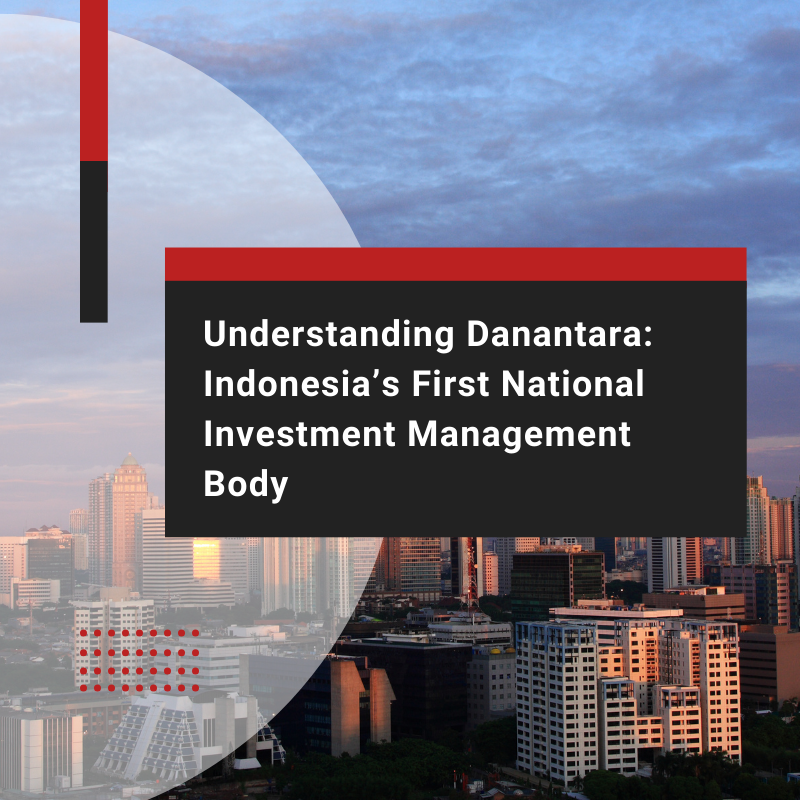Danantara marks a historic development in Indonesia’s economic landscape as the country’s first national investment management body. Danantara aims to streamline the management of state-owned assets and drive national economic growth, positioning itself as a key player in shaping Indonesia’s future.
This article explores Danantara’s significance, objectives, and potential impact on Indonesia’s investment environment.
The Background of Danantara
Danantara aims to establish itself as Indonesia’s premier investment management body, mirroring renowned state investment funds like Singapore’s Temasek and Norway’s Norges Bank Investment Management (NBIM). This initiative aims to attract and manage investments efficiently, bolstering the nation’s economic development.
Muliaman Darmansyah Hadad, the Head of Danantara, stated that its establishment would require amendments to the Law on State-Owned Enterprises (BUMN). He explained that while all separated government assets would eventually fall under Danantara’s management, this would occur gradually, starting with the agency’s formation and then developing its legal framework.
Muliaman underscored that Danantara’s creation aligns with President Prabowo’s vision for a more coordinated and strategic approach to managing national investments.
The Objective of Danantara
BP Investasi Danantara (The Investment Management Body Daya Anagata Nusantara) is to serve as the foundation for the superholding of state-owned enterprises (SOEs).
Reports indicate that Danantara will operate directly under President Prabowo’s leadership and follow the model of institutions like Singapore’s Temasek Holdings Limited.
A key focus of Danantara would be integrating the Indonesia Investment Authority into its structure. The agency would prioritize professional management and gradually remove Public Service Obligation (PSO) functions.
Kartika Wirjoatmodjo, the Deputy Minister of State-Owned Enterprises, remarked that the government was aware of entities like Temasek (Singapore) and Khazanah (Malaysia). He expressed confidence that Indonesian SOEs would surpass these organizations on the global stage.
How Danantara Optimizes Investment Scene in Indonesia

Danantara aims to revolutionize Indonesia’s economic landscape through strategic investment management. By consolidating state assets and fostering collaboration among key stakeholders, Danantara seeks to optimize resource allocation, drive sustainable growth, and elevate Indonesia’s global competitiveness.
This ambitious endeavor is poised to unlock new opportunities, propel innovation, and secure the nation’s prosperous future.
Optimization of Various Government Assets
Muliaman Darmansyah Hadad, the Head of Danantara, stated that the agency would manage various government assets distributed among different ministries and agencies. These assets would then be consolidated and strategically optimized.
He stated that Danantara would be larger and have a wider scope than the Indonesia Investment Authority, which currently functions as the country’s sovereign wealth fund.
Delivering High Returns for the Indonesian Government
The 2025 state budget will provide operational funding for Danantara, enabling the new investment body to launch its operations. Although a specific timeline for completion remains undecided, Muliaman confirmed that ministries will soon begin coordinating to expedite Danantara’s start.
Danantara aims to boost Indonesia’s competitiveness in managing strategic assets. Drawing inspiration from global sovereign wealth funds like Temasek, it will operate as an independent investment management center focused on delivering high returns for the Indonesian government.
The New Legal Framework
The creation of the Danantara required a strong legal foundation, and amendments to the State-Owned Enterprises (BUMN) Law were crucial to the process.
This step was necessary to grant Danantara the authority to manage government investments independently and professionally. As a result, the government would hold further discussions with relevant ministries to ensure the law was amended gradually.
Examples of Investment Management Bodies in Other Countries
There are plenty of global examples of investment management bodies. These institutions are major contributors to national wealth and influence global financial markets.
Below are some prominent investment management bodies worldwide. Each manages substantial assets to advance its country’s economic interests.
- Norges Bank Investment Management (NBIM) – Norway: Manages assets totaling USD 1.8 trillion. Leads the world in effectively consolidating financial assets.
- China Investment Corporation (CIC) – China: Manages assets totaling USD 1.35 trillion.
- Abu Dhabi Investment Authority (ADIA) – United Arab Emirates: Holds assets totaling USD 993 billion.
- Public Investment Fund (PIF) – Saudi Arabia: Manages assets totaling USD 847 billion.
- Qatar Investment Authority (QIA) – Qatar: Manages assets totaling USD 765 billion.
- National Wealth Fund (NWF) – Russia: Manages assets totaling USD 510 billion.
- Temasek – Singapore: Manages assets totaling USD 332 billion.
- Kuwait Fund for Arab Economic Development (KFAED) – Kuwait: Manages assets totaling USD 302 billion.
- Khazanah Nasional – Malaysia: Manages assets totaling USD 30 billion.
How Can Danantara Benefit Indonesia’s Investment Landscape
Danantara represents a transformative initiative aimed at reshaping Indonesia’s investment environment and enhancing the efficiency of state-owned enterprises (BUMN).
Below are the key ways in which Danantara can positively impact Indonesia’s investment landscape:
Restructuring State-Owned Enterprises (BUMN)
Wijayanto Samirin, a senior economist from Paramadina University, stated that establishing Danantara marks a significant step toward restructuring Indonesia’s state-owned enterprises (BUMN). According to him, Danantara will enable BUMN to operate more efficiently and be free from the constraints of excessive bureaucracy.
National Economic Growth
Meanwhile, Edhie Yudhoyono, a member of the Indonesian House of Representatives (DPR RI), emphasized that structured and proper management should position this superholding as a key pillar of national economic growth.
Strengthening Key Sectors
The sovereign wealth fund managed by Danantara, under the leadership of the Indonesian government, is anticipated to strengthen the food, energy, and industrial sectors and stimulate other sectors through sustainable new investments.
Enhancing BUMN’s Role
Leaders view this superholding as a way to enhance BUMN’s role in driving the national economy. By establishing a solid capital structure and implementing sustainable investment strategies, Danantara aims to significantly improve BUMN’s performance, attract new investments, and strengthen the country’s economic resilience.
Global Partnerships and Governance
Beyond asset management, Danantara has the potential to serve as a primary force in corporate actions and global commercial partnerships. With efficient governance, this super-holding can guide BUMN in collaborating with international partners and positioning itself as a critical player in the global market.
Guide to Doing Business in Jakarta

Embark Your Investment Journey in Indonesia with InCorp
The establishment of Danantara is set to transform Indonesia’s investment landscape. It will oversee the management of various government assets, opening new opportunities for investors looking to tap into the country’s dynamic and growing market.
If you are keen to explore these emerging opportunities, InCorp Indonesia can be your trusted partner in navigating the complexities of the investment process. We offer:
- Company registration for a seamless setup in Indonesia.
- Business licensing services to help navigate regulatory requirements and ensure smooth operations.
Fill out the form below to take the first step toward your investment goals in Indonesia.
Daris Salam
COO Indonesia at InCorp Indonesia
With more than 10 years of expertise in accounting and finance, Daris Salam dedicates his knowledge to consistently improving the performance of InCorp Indonesia and maintaining clients and partnerships.


